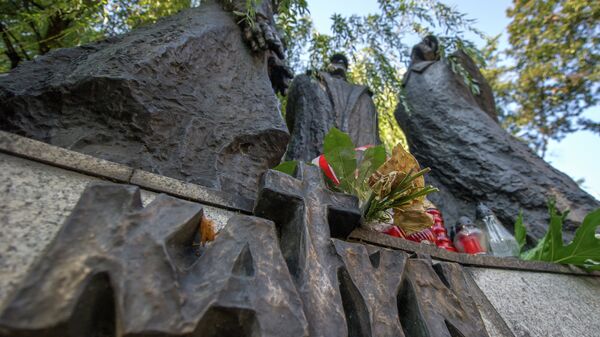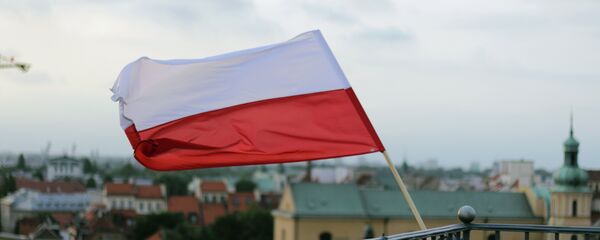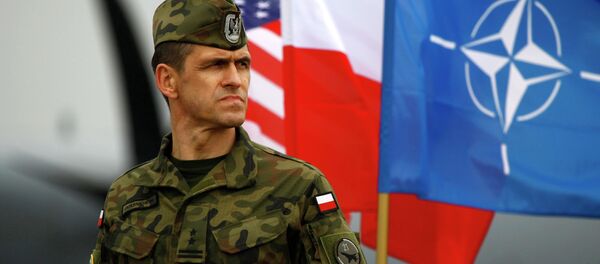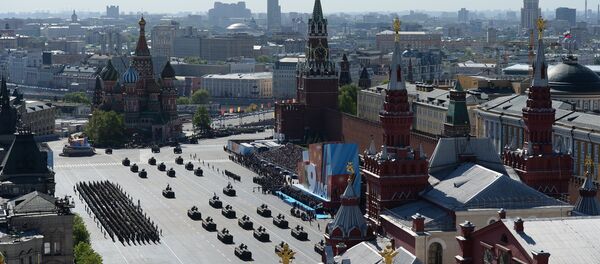Rossiya 24's commentary accused the president of "forgetting what the Nazis did to the Poles," stating that "at an event dedicated to the anniversary of the massacre of Polish officers in the Katyn forest, President Komorowski said that there was no greater war crime. Obviously, the president forgot or did not want to remember the crimes of Nazi executioners operating in Poland." Rossiya 24 added that the president's words signaled an attempt by "Poland's political elite to once again try to rewrite history."
Radio Poland responded, noting that "in fact, the head of the Polish state did recall the crimes of the Nazis in his speech, and, secondly, he did not call the execution of the officers 'the most terrible crime of the 20th century.'"
However, on the Polish President's website, featuring an excerpt from the speech, the president was clearly cited to have said that "the Stalinist criminals raised their hands on war prisoners and murdered all or almost all of the Polish officers they took hostage in 1939. The 20th century knows no comparable crime."
The president's speech also featured an attempt to equate the Soviet NKVD's crimes in executing Polish officers to much larger and widespread Nazi war crimes. The president noted that 1940, when Polish prisoners of war were executed at Katyn and several other sites in the USSR, was "the darkest night of the Second World War in Polish hearts," with Nazi and Soviet aggressors "working hand in hand, first and foremost to exterminate the Polish elite."
Politicizing the ceremony ahead of presidential elections scheduled for May, Komorowski attempted to compare the NKVD's historical crimes to the situation in Ukraine today. "We are living in dangerous times. We are again witnessing the rise of wicked imperial aspirations…Thinking of those killed at Katyn, I reflect on contemporary crimes and acts of aggression." The president noted that "the new situation to the east of our borders demands from us…a sense of national solidarity."
Over the last months, ahead of the seventieth anniversary of victory in the Second World War, Russian and Polish officials have engaged in a diplomatic scuffle, with the Russians accusing the Poles of attempting to rewrite history. The diplomatic conflict reached its apogee in January, when Polish Foreign Minister Grzegorz Schetyna stated that Ukrainians, rather than Soviets, liberated the infamous Auschwitz concentration camp. Earlier, Polish state officials offended Russian sensibilities by refusing to commemorate the 70th anniversary of the liberation of Warsaw by Soviet and Polish forces, where nearly 22,000 Soviet soldiers were killed fighting for the city. Even worse in the Russians' view have been recent statements by officials and journalists that the liberation of Poland, where 600,000 Soviets laid down their lives, was not a liberation at all, but "a second occupation" by "occupiers from the East."
Commenting on the sordid affair in an analytical article earlier this year, Sputnik columnist Dmitry Babich explained that the soldiers buried in Warsaw, and elsewhere "did not take part in the Stalinist repressions against Polish nationalists." Babich noted that first Gorbachev, then Yeltsin and Putin, officially "apologized to Poland for the repressions that were conducted by the Soviet secret police."
“During the course of five years of occupation, the Germans killed several million Polish citizens; they totally destroyed the country, shutting down universities and high schools. The German Plan Ost presupposed the physical liquidation of educated Poles, the conversion of the rest of the population into manual laborers and even a resettlement of Poles to the vicinity of the Ural Mountains. Meanwhile, the pro-Soviet Polish People’s Republic, during its 40 years in power, killed just 30,000 persons and most of them in the immediate aftermath of the war. How can these two very different sins be even compared?”





